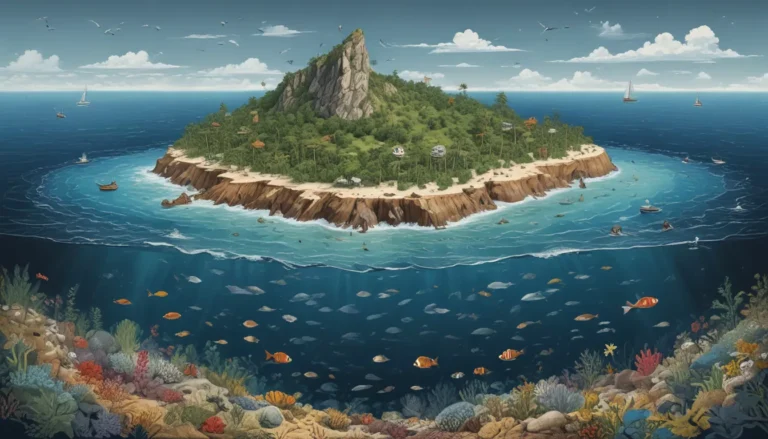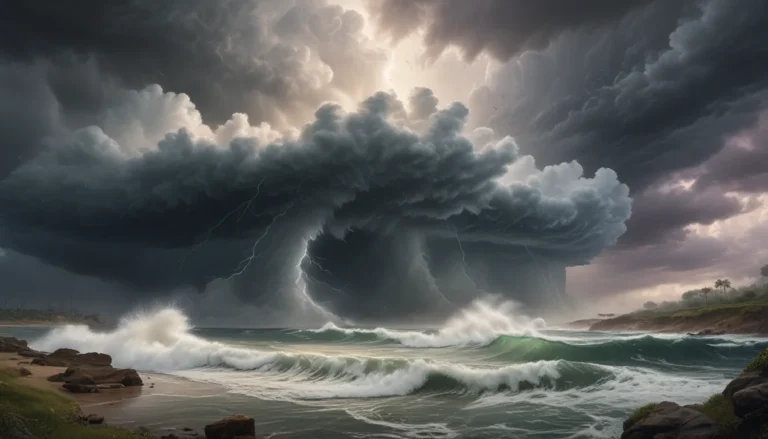A Note About Images: The images used in our articles are for illustration purposes only and may not exactly match the content. They are meant to engage readers, but the text should be relied upon for accurate information.
Climate change and global warming have become prominent topics in today’s world, sparking discussions and concerns across the globe. As our planet faces unprecedented challenges, it is essential to equip ourselves with knowledge about these critical issues. In this comprehensive article, we will delve into 14 surprising facts about climate change and global warming that will both enlighten and intrigue you. From the impact on polar ice caps to the rising sea levels, these facts will provide you with a deeper understanding of the magnitude and urgency of the challenges we are currently facing. So, grab a seat, grab your favorite beverage, and let’s embark on an enlightening journey into the realm of climate change and global warming.
Understanding the Urgency
- Climate change is a real threat with severe consequences: It is causing the Earth to warm up, leading to the melting of polar ice caps, extreme weather events, and risks to food production and coastal communities. Vulnerable populations are the most affected, facing health issues, loss of biodiversity, and economic instability. It is imperative to take action to protect our planet and all its inhabitants.
Unveiling the Reality: 14 Facts about Climate Change
The Earth’s Temperature Rise
One of the most significant markers of climate change is the steady increase in the Earth’s average temperature. Over the past century, the planet has experienced a rise of approximately 1 degree Celsius, primarily attributed to human activities such as the burning of fossil fuels and deforestation.
The Melting Polar Ice Caps
The effects of global warming are prominently visible in the polar regions, with the Arctic experiencing a substantial loss of ice over the years. This not only contributes to rising sea levels but also disrupts the delicate ecosystem of these regions, posing a threat to species like polar bears and seals.
Ocean Acidification
Increased carbon dioxide levels in the atmosphere lead to ocean acidification, reducing the pH level of seawater. This poses a severe threat to marine life, especially organisms with shells or coral reefs, hindering their growth and survival and impacting the entire marine ecosystem.
The Rise of Extreme Weather Events
Climate change is linked to a surge in extreme weather events such as hurricanes, heatwaves, droughts, and heavy rainfall. These events are becoming more frequent and intense, resulting in loss of lives, infrastructure destruction, and community displacement.
Food Production and Global Food Security
Changing climate patterns pose a significant risk to global food production, with rising temperatures, unpredictable rainfall, and extreme weather events leading to crop failures and compromised food security. This puts vulnerable populations at a higher risk of hunger and malnutrition.
Coastal Communities at Risk
The melting polar ice caps and rising ocean temperatures contribute to a steady increase in sea levels, posing a significant threat to coastal communities worldwide. The potential consequences include widespread flooding, erosion, and the displacement of millions of people living in these areas.
Biodiversity Loss
Climate change not only affects temperature and weather patterns but also disrupts ecosystems and biodiversity. Many species struggle to adapt to rapid changes, leading to population declines or even extinction, with far-reaching consequences for ecosystems and their services.
Impact on Crop Nutritional Value
Elevated levels of carbon dioxide in the atmosphere can reduce essential nutrients in staple crops like rice and wheat, such as iron, zinc, and protein. This poses a threat to global food security and human health, highlighting the complex impacts of climate change.
Social Justice Dimensions
Climate change amplifies existing inequalities and disproportionately affects vulnerable communities such as the poor, indigenous populations, and developing countries. These communities lack resources to adapt to climate impacts, making them more vulnerable to its consequences.
Coral Bleaching Due to Warming Oceans
Rising ocean temperatures can lead to coral bleaching, where corals lose their colors due to stress. Coral reefs are crucial for marine biodiversity, serving as habitats for numerous species and playing a vital role in marine ecosystems.
Greenhouse Gas Release from Melting Permafrost
Thawing permafrost in Arctic and sub-Arctic regions releases significant amounts of greenhouse gases, contributing to the greenhouse effect and exacerbating climate change. This release of gases like methane further intensifies climate impacts.
Health Impacts of Climate Change
Climate change has direct and indirect consequences on human health, including heat-related illnesses, respiratory issues due to air pollution, and the spread of infectious diseases. Vulnerable populations and regions with limited healthcare facilities are particularly at risk.
Forest Fire Frequency and Severity
Climate change is associated with increased forest fire occurrences globally, driven by rising temperatures, prolonged droughts, and dry fuel sources in forests. These fires not only destroy habitats but also emit large amounts of carbon dioxide, worsening climate change impacts.
Economic Losses and Instability
The impacts of climate change extend to the global economy, with costs associated with adapting and mitigating impacts being substantial. Extreme weather events, disrupted agriculture, and damaged infrastructure lead to economic losses and potential financial instability.
Taking Action for a Sustainable Future
Climate change and global warming present urgent challenges that require collective action and awareness. It is essential for individuals, communities, and governments to collaborate in mitigating the causes and effects of climate change. By adopting sustainable practices, reducing greenhouse gas emissions, and supporting renewable energy sources, we contribute to a healthier, resilient planet. Spreading awareness, educating others, and engaging in initiatives dedicated to combating climate change are crucial steps towards long-term environmental preservation.
Embracing Collective Efforts and Positivity
While the challenges of climate change are vast, there are positive developments globally, such as the Paris Agreement, advancements in renewable energy technologies, and increased global awareness of climate change urgency. However, continuous efforts and collective actions remain key to achieving significant progress.
Conclusion
In conclusion, climate change and global warming are critical issues with profound impacts on our planet. The 14 eye-opening facts discussed shed light on various dimensions of these phenomena, emphasizing the need for immediate action and awareness. From the consequences of rising temperatures and melting ice caps to ecosystem disruptions and health effects, the urgency of addressing climate change is evident. Together, through sustainable practices, advocacy, and support for climate initiatives, we can strive towards a future where climate change impacts are minimized, and the planet thrives once again.
FAQs on Climate Change
Q: What causes climate change?
A: Climate change is primarily driven by the increased concentration of greenhouse gases in the atmosphere, stemming from human activities like fossil fuel burning and deforestation.
Q: How does global warming affect the planet?
A: Global warming leads to rising temperatures, polar ice cap melting, extreme weather events, ecosystem shifts, agricultural disruptions, water scarcity, and adverse health effects.
Q: Is climate change reversible?
A: While some impacts of climate change are irreversible, immediate action to reduce greenhouse gas emissions and mitigate effects can help prevent further damage and promote sustainability.
Q: How can individuals combat climate change?
A: Individuals can make a difference by adopting sustainable practices, reducing energy consumption, supporting renewable energy sources, advocating for policy changes, and raising awareness about climate change importance.
Q: Are there positive developments in climate change action?
A: Yes, positive developments include the Paris Agreement, renewable energy advancements, and increased global awareness. However, sustained efforts and collective action are crucial for significant progress.
Your Valuable Feedback
We strive to deliver trustworthy and engaging content, with each fact contributed by users like you, ensuring diverse insights and information. Our dedicated editors meticulously review submissions, guaranteeing fascinating and credible facts. Trust in our commitment to quality and authenticity; explore, learn, and join us in our journey towards a sustainable future.
By embracing collective efforts and raising awareness, we can create a positive impact on climate change and work towards a healthier planet for generations to come. Let’s embark on this journey together, united in our commitment to environmental preservation and sustainability.






